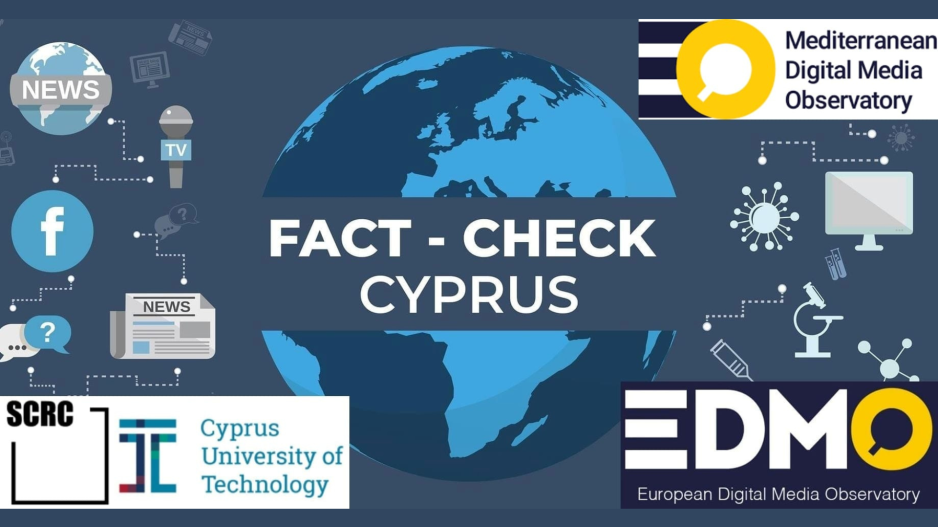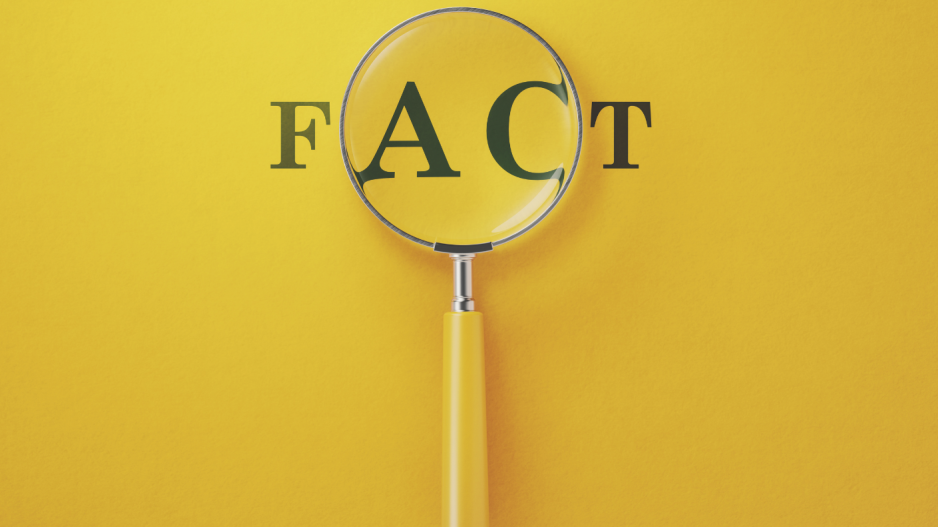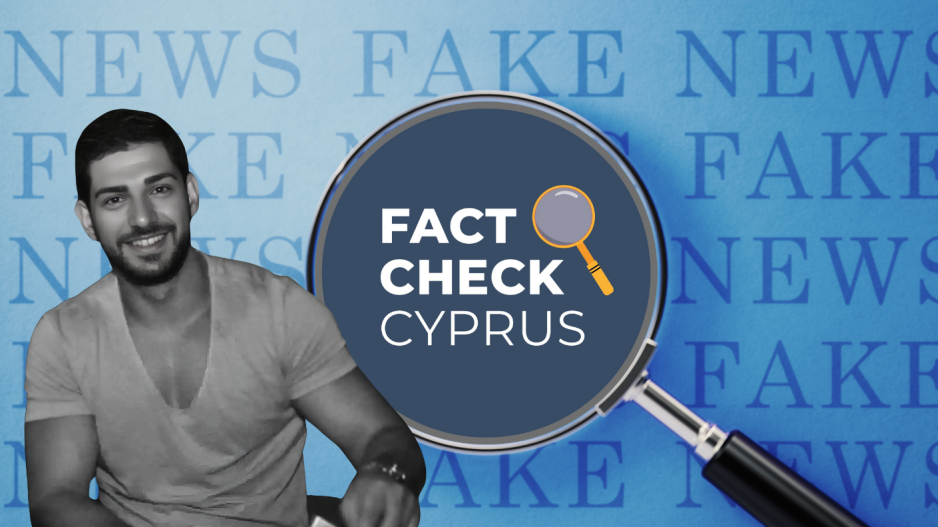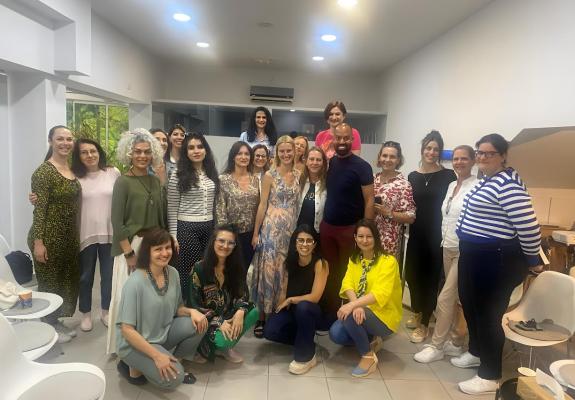The Cypriot Hunters of Online Fake News
Fact Check Cyprus Co-Founder, Iakovos Mylonas, Speaks to FastForward About the Challenges of Fact-Checking, the Common Motives or Themes Behind Fake News, and the Role of Tech and AI
Fact Check Cyprus, a dynamic team dedicated to combating misinformation, has become an essential shield in the Cypriot digital space. The team consists of founders Iakovos Mylonas and Dr. Andreas Andreou, along with Chief Editor Dr. Loukia Taxitari, Fact Checker Alexandros Efstratiou, and Thanos, an external consultant, supported by IT specialist Pantelitsa Leonidou.
The mission of Fact Check Cyprus is twofold: debunking false news and educating the public on misinformation and digital literacy. Alarmingly, Cyprus ranks high in Europe for its population's belief in conspiracy theories and dangerous misinformation, as per a Eurobarometer report by the European Commission. The team's multifaceted approach, combining the expertise of volunteers from diverse fields such as Biology, Food Science, Psychology, and Linguistics, is critical in countering this trend.
FastForward spoke with Iakovos Mylonas about the challenges of fact-checking, the common motives or themes behind fake news, and the role of tech and AI.

Yes, there are similarities between ensuring the safety of food and fact-checking information. Both involve rigorous examination, verification, and adherence to standards to ensure consumers receive accurate and reliable products or information. In both cases, attention to detail and a commitment to transparency are crucial.
Fact-checking claims about vaccine-related deaths, especially those involving children, presents numerous challenges due to the emotional nature of the topic, limited information provided in social media posts, the potential for confirmation bias, the rapid spread of misinformation, and the complexity of scientific concepts involved. Fact-checkers must approach these claims with care, diligence, and a commitment to accuracy to ensure that accurate information is disseminated to the public.
Yes, in our experience, we have noticed several common motives or themes among the majority of fake news. These include:
Political Manipulation, Profit, Ideological Agenda, Social Division, and Misinformation for Entertainment
Political Manipulation: Many false stories aim to manipulate public opinion or influence political outcomes by spreading misinformation about candidates, parties, or policies.
Profit: Some fake news is created and spread purely for financial gain, often through clickbait headlines or sensationalized content designed to attract website traffic or generate ad revenue.
Ideological Agenda: Certain false stories are propagated to advance a particular ideological agenda or promote a specific worldview, often by reinforcing existing biases or stereotypes.
Social Division: Fake news may seek to exacerbate social divisions by spreading inflammatory or divisive content that pits different groups against each other based on race, religion, ethnicity, or other factors.
Misinformation for Entertainment: In some cases, false stories are created and shared for entertainment purposes, without consideration for the potential harm or consequences they may have.
The rapid advancements in technology and AI have both positive and negative implications for the spread of fake news on social media platforms.
On the positive side, AI-powered tools and algorithms can be leveraged to detect and combat fake news more effectively. Natural language processing (NLP) algorithms can analyze large volumes of text to identify patterns of misinformation, while machine learning models can learn to differentiate between reliable and unreliable sources. Additionally, AI can help fact-checkers automate certain aspects of the verification process, enabling them to debunk false information more efficiently.
Malicious actors can use AI to generate increasingly sophisticated fake news content that is more difficult to detect using traditional methods
However, these same advancements also present challenges. Malicious actors can use AI to generate increasingly sophisticated fake news content that is more difficult to detect using traditional methods. Deepfake technology, for example, can be used to create highly realistic videos or audio recordings that spread false information and manipulate public perception.
Extensive research resources, including access to academic journals, databases, and experts in various fields. Collaborating with an academic institution can provides with valuable resources for conducting in-depth research and analysis.By collaborating on research projects, sharing data and resources, and participating in academic conferences and events, our organization can expand their professional network and build relationships with experts and researchers in related fields.
Education Initiatives: Implement educational programs in schools and communities that focus on media literacy and critical thinking skills. Teach students and the general public how to evaluate sources, identify bias, and distinguish between reliable information and misinformation.
Promote Source Verification: Encourage individuals to verify information before sharing it on social media or other platforms. Teach them how to cross-reference information from multiple sources and fact-check claims using credible sources such as news organizations, academic institutions, and government agencies.
The Cypriot public can become more well-equipped to identify fake news and conspiracy theories
Implementing these strategies, the Cypriot public can become more well-equipped to identify fake news and conspiracy theories, ultimately helping to build a more informed and resilient society.







